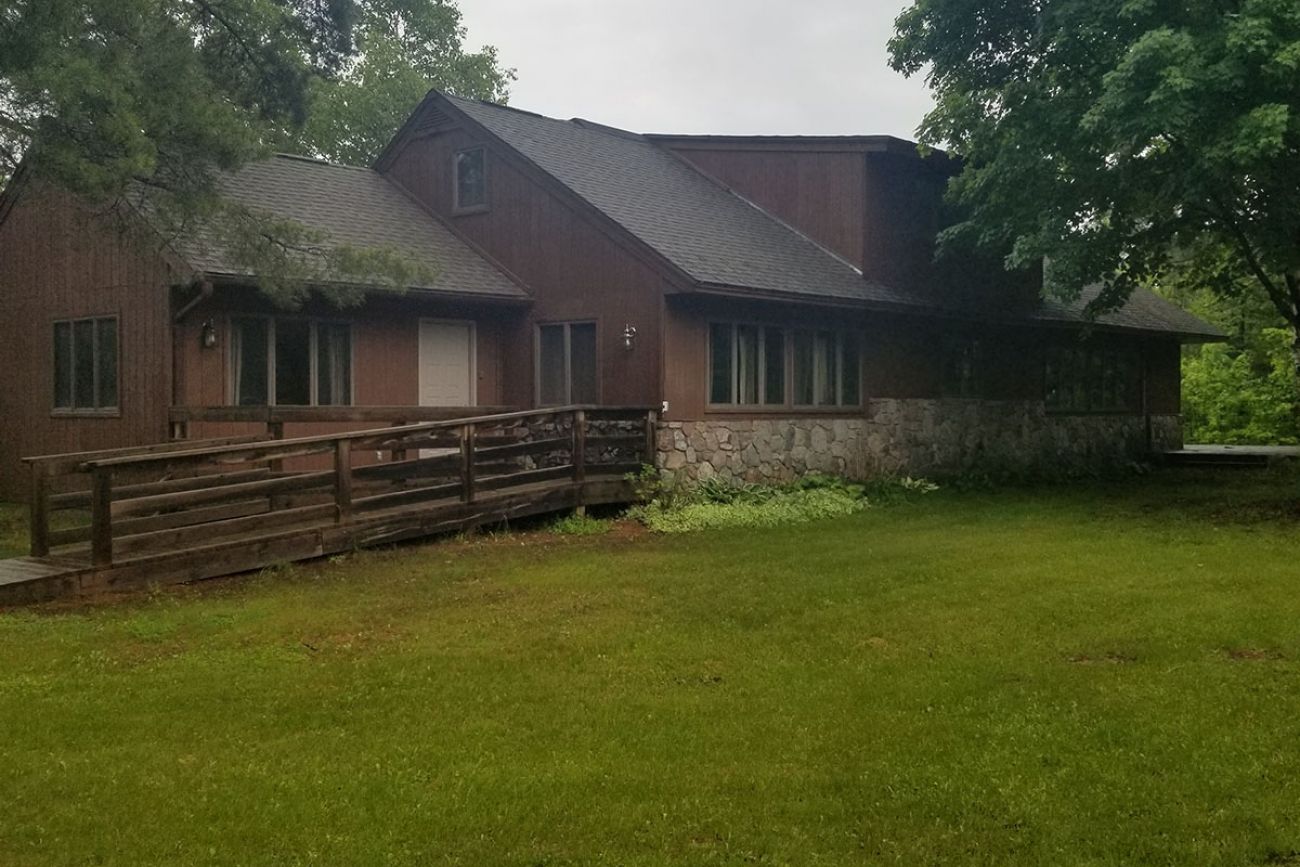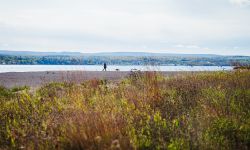Michigan’s northern state parks may add worker housing

An old, unused bunkhouse in the far west of the Upper Peninsula could soon play a vital role in Michigan parks recruitment.
Ron Olson, parks chief for the Michigan Department of Natural Resources, said repairing the building in the Porcupine Wilderness State Park will allow the state to offer housing to seasonal workers unable to find rentals on their own.
The move — still in planning stages — will follow a pilot program launched this year at another popular U.P. destination: Tahquamenon Falls State Park, where three summer workers are living in a former park supervisor’s residence.
Related:
- Up North businesses are buying housing just to lure summer staff
- Michigan parks, more popular than ever, struggle to staff up for summer
- Check out the Michigan Economic Dashboard
The conversion of the residence into living space for seasonal workers — the people who admit vehicles, clean restrooms and prepare campsites in the busiest months — was launched as hiring struggles met an extreme lack of temporary housing, Olson said.
Eventually, more parks in the state system are likely to emulate private employers in solving workforce housing shortages by converting space to low-cost rental housing or building new places for workers to live.
“I think it is going to be almost a necessary kind of thing that we’ll have to do,” Olson told Bridge Michigan.
The state parks — after years of low hiring rates — find themselves in the same position as among many other Northern Michigan employers, with few options to offer the seasonal workers who make the summer tourism industry run.
So far this year across the northwest Lower Peninsula, Short’s Brewery in Bellaire bought a motel that it plans to convert into rooms, and eventually apartments, for staff. Cherry Republic is converting rooms in a home it owns in Maple City, located minutes from its Glen Arbor retail and warehouse operations. Stormcloud Brewing Company and Birch & Maple both added housing options in Frankfurt, including camp sites.
The struggle extends well into the Upper Peninsula, including around Tahquamenon Falls, said Tammy Henry, executive director of the Luce County Economic Development Corporation.
When it comes to workforce housing, Henry said, “there isn’t any.”
Housing prices set records in Michigan over the past year following a years-long shortage of listings.
In the Eastern Upper Peninsula, the number of year-to-date listings dropped 25 percent as of April, while the average price jumped 19 percent to $162,543, according to the Michigan Association of Realtors. During that same period across the state, listings dropped nearly 10 percent, while prices gained 10 percent, averaging $246,388.
The situation creates a year-round problem in the Newberry community, southwest of Tahquamenon Falls, as Henry said employers make job offers that are declined due to the lack of housing.
Around Tahquamenon and the Porcupine Mountains, the two largest state parks, a lack of new construction, rising prices and conversions of residential property to short-term rentals all contribute to the worker housing crunch, Henry said.
In addition, many of the second homes in the U.P. became primary residences for their owners during the pandemic.
“People wanted to leave the city,” Henry said.
That made fewer properties available for people like college students who might want to spend a summer working in nature.
“It always seems to come back to housing,” Henry said. “If we can attract people, there’s nowhere for them to (live).”
Sleeping Bear Dunes National Park in northwest lower Michigan experienced similar issues in recent years, as visitors climbed. It then turned to the community around it to find housing for workers.
The solution was so successful that the Sleeping Bear Gateways Council, a volunteer board that supports towns around the park, started a similar program for other employers this summer, asking residents to consider renting spare bedrooms, lofts or vacant cottages so that popular businesses could find staff.
Hiring remains a concern for businesses all over the state after Michigan’s labor force participation rate declined at the start of the pandemic and remains lower than the national average. It’s now at 59.8 percent of working age adults in the state, compared to 62.2 percent nationally.
Wages have increased as employers compete to hire. The average weekly earnings in Michigan is up 11 percent from summer 2021 through spring.
The state also raised wages to boost seasonal park workers, Olson said. Instead of starting first-year workers at $10.20 per hour, all seasonal workers this year start at $15 per hour.
“The first week we did that, it sparked about 400 applicants,” Olson said.
Even with staffing now at over 1,100 people — more than it’s been able to hire since before the pandemic — the parks are still shy of the 1,300 that the system wants to hire for the summer.
In some areas, like metro Detroit, competition may come from fast food or other service industries, which also raised pay — in some cases beyond the state park rate, Olson said.
High-traffic tourist spots in the state also are struggling to hire, Olson said. Places like Mackinac Island and Mackinaw City are feeling it, he said, as are the state’s most popular parks.
“The supply of workers just isn’t there, and the demand for tourism is great,” Olson said.
Some parks will find it easier to add housing, including those with structures on the property that can be converted, as in Tahquamenon Falls and the Porcupine Mountains. Others could end up with ground-up construction, but details and funding are not firm yet.
“If we did have lodging in these way-away places, it would make it a lot more flexible for individuals who want to work for the park and want to go north, but can’t afford … paying their rent.”
Business Watch
Covering the intersection of business and policy, and informing Michigan employers and workers on the long road back from coronavirus.
- About Business Watch
- Subscribe
- Share tips and questions with Bridge Business Editor Paula Gardner
Thanks to our Business Watch sponsors.
Support Bridge's nonprofit civic journalism. Donate today.
See what new members are saying about why they donated to Bridge Michigan:
- “In order for this information to be accurate and unbiased it must be underwritten by its readers, not by special interests.” - Larry S.
- “Not many other media sources report on the topics Bridge does.” - Susan B.
- “Your journalism is outstanding and rare these days.” - Mark S.
If you want to ensure the future of nonpartisan, nonprofit Michigan journalism, please become a member today. You, too, will be asked why you donated and maybe we'll feature your quote next time!




